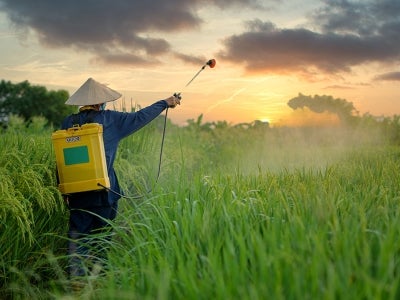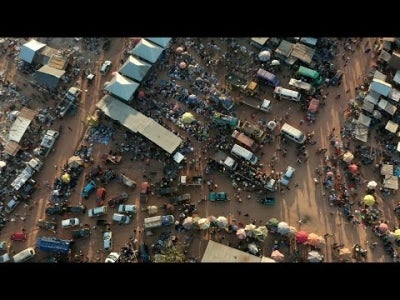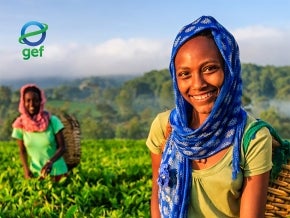
UNEP Program Management Officer Ludovic Bernaudat works to help developing countries reduce exposure to toxic chemicals, including mercury, through the GEF-supported planetGOLD and ISLANDS programs. In an interview, he reflected on the importance of bringing together people and institutions with different perspectives to tackle tough environmental challenges.
When did you start to become interested in global environmental issues?
I have been interested in global environmental issues for as long as I can remember. Growing up in France, Jacques-Yves Cousteau documentaries were ‘must-see TV’ on Sunday afternoons. As a high school student, I collected World Wildlife Fund endangered species photos and watched as many wildlife documentaries as I could. At university, I was able to link my interest in chemistry with environmental issues through an environmental engineering degree. I started focusing on environmental policy during the final year of my master’s degree, while working as an intern on the air quality team at Australia’s Commonwealth Scientific and Industrial Research Organisation.
What is your role at UNEP and how does it relate to the Global Environment Facility?
I’m part of UNEP’s GEF Chemicals and Waste Unit, where I lead the team that develops and implements projects to help countries meet their obligations under international environmental treaties and policy frameworks. In recent years, our work has included two GEF-supported programs, planetGOLD and ISLANDS - both of which rely on the involvement of many stakeholders, from local communities to governments and the private sector.
With planetGOLD, we’re addressing the use of mercury in artisanal and small-scale gold mining. The program will contribute to the reduction of mercury emissions in eight countries, support the formalization of the artisanal and small-scale gold mining sector, and provide mining communities with access to finance to purchase equipment that will allow them to extract gold more efficiently and safely.
ISLANDS is an innovative program that helps island states in the Caribbean, Pacific, and Indian Oceans manage the impacts of chemicals and waste on their unique environments. By working with both the public and the private sectors, as well as the communities affected by waste management practices, ISLANDS supports solutions for the sustainable development of island states and helps them manage and eliminate the most hazardous types of waste.

Is there someone you have met through your work that had a lasting impact on you?
Working with UNEP’s Global Mercury Partnership has been a source of real inspiration. I have co-led the artisanal and small-scale gold mining area of the partnership since its inception and I’m proud of how it has played a key role in bringing the issue of mercury to the forefront of the international environmental agenda. It gathers a wide range of stakeholders and has proven to me that real progress in environmental management is possible only when we can convince diverse groups to work together.
Another important source of inspiration for my work comes from the communities that have managed to reconcile economic development and environmental conservation. For example, in 2012 I visited a small-scale gold mining operation in Ecuador that had succeeded in significantly limiting its environmental impacts with the use of an extensive effluent treatment system. At the same time, it had a very high gold recovery rate. Such locally-developed solutions give me hope for the future as they demonstrate our projects are on the right track.
How has the COVID-19 outbreak affected your work?
Even before the pandemic, our portfolio was spread around the world, so flexibility and team cohesion was already important. We’ve managed to shift to remote work while maintaining a team spirit from our respective home offices.
My work usually requires a lot of face-to-face interaction. Developing projects requires close interaction and extensive discussion with local communities, civil society, the private sector, and national institutions. Managing a project also usually requires an annual site visit. For all these reasons, the COVID-related travel restrictions have been challenging but we have been able to use communication technology to keep in touch with project teams. We also remain in regular contact with our executing partners in the field - the people in charge of projects’ day-to-day operations - to ensure they have the support they need to maintain progress.
What life lessons has your work life taught you?
All the greatest achievements of my professional life have been a team effort, involving not only talented individuals, but organizations with different mandates and areas of expertise. With planetGOLD, for example, we are working hand in hand with UN agencies, NGOs, and academics to develop innovative solutions that will have a lasting impact. I have seen that when we work together, we can achieve much greater results than we ever could individually.


